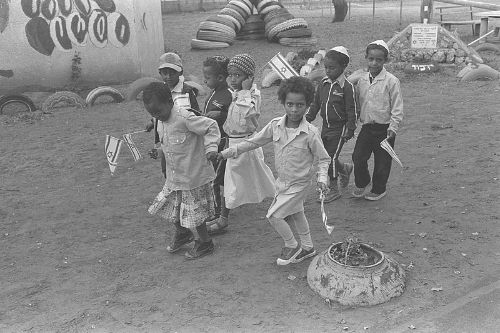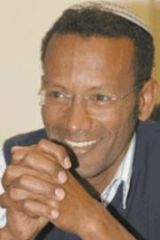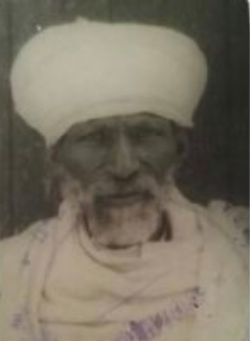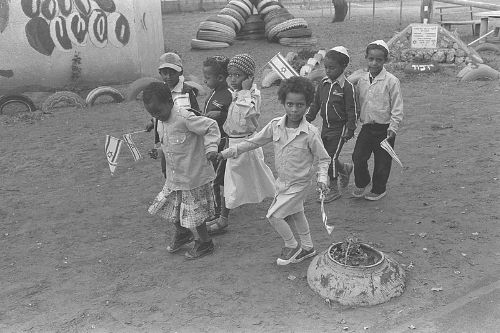Ethiopian Jewry & the Rich Diversity of Jewish Life: An Interview with Rabbi Dr. Sharon Shalom

Mazal tov on the founding of the Center for the Study of Ethiopian Jewry at the Ono Academic College!
24 January 2019

Sephardi Ideas Monthly is a continuing series of essays from the rich, multi-dimensional world of Sephardi thought that is traditionally delivered to your inbox on the second Monday of every month. We delayed this month’s SIM in order to bring you an exclusive interview with Rabbi Dr. Sharon Shalom, who will be speaking at the upcoming Jewish Africa Conference (27-29 January) organized by the American Sephardi Federation and Association Mimouna.

(Photo courtesy of Brandeis University)
Rabbi Dr. Sharon Shalom
Born and raised in Ethiopia until the age of nine, Rabbi Dr. Sharon Shalom trekked with his family to Sudan before being spirited out to Israel in 1982. Once in the country, R’ Shalom not only learned the language and acclimated to Israeli society, he served as an officer in the Israel Defense Forces, received ordination from the Israeli Rabbinate, and earned a PhD at Bar Ilan University.
In 2012, R’ Shalom penned his first book, a pioneering study of Ethiopian Jewish tradition, From Sinai to Ethiopia: The Halakhic and Conceptual World of Ethiopian Jewry. The book has been translated into English by Gefen Publishing House. His follow-up book, Conversation about Love and Fear: The Dialogue between the Rabbi’s Daughter and the Kes’s Son (Hebrew), is a thought-provoking and courageous work that contends with some of the deeper issues bedeviling Israeli religious society. It was published at the end of 2018. To top it all off, earlier this month R’ Shalom was installed as head of the International Center for the Study of Ethiopian Jewry at the Ono Academic College.
R’ Shalom graciously agreed to sit down with SIM for a cup of coffee and an interview about the relationship between Ethiopian Jewry and R’ Ovadia Yosef, academic studies of Ethiopian Jewish culture, his new book, the new center at Ono College, and the problem with well-intentioned but ultimately limited liberal and pluralistic approaches to the study of Ethiopian Jewish tradition.
 The Monthly Sage החכם החודשי
The Monthly Sage החכם החודשי
Hakham Wobasht Ayetgav

Wobshat Ayetgav, from the province of Gondar in northern Ethiopia, worked as a farmer but studied Torah at night and on Shabbat. That didn’t satisfy Wobshat’s desire for Judaism, however, so he left his family for a period of seven years in order to study and be ordained as a Kess by Ethiopian Jewish priests. After being installed as a Kess, he returned to his family and to his agricultural work.
Tension with local Christians, however, compelled Kess Ayetgav to move to the Jewish village of Ambobar. Once there, Kess Ayetgav established and led a synagogue and children’s school. He then left Ambobar in 1973 to make aliyah to Israel. Upon arriving in the country, Kess Ayetgav met with Hacham Ovadia Yosef, who soon ruled that Ethiopian Jews are, indeed, fully Jewish.
Kess Wobasht Ayetgav lived in Israel for 21 more years, serving the Ethiopian Jew community in the country and helping to establish the Israeli version of the Ethiopian Jewish Sigd festival. Kess Ayetgav passed away in 1994. Since he didn’t leave behind any writings, his teachings have been collected by his children and pupils.
Kess Wobshat Ayetgav on Charity:
“Let your home be wide open”– Every person must open his home and heart to all who approach him. We must see to food for those who request food, we must see to lodgings for those who require lodgings. And we must provide support to those who request it. We must excel in the attribute of compassion. It is appropriate that a person open his heart and home to all those who are needy and willing, see to it that your home is always open to all people, to provide a place to sleep and foodstuffs to those who request them. It is forbidden for a person to take money from people requesting a blessing or sound advice, and if one is nevertheless given money, he should give the money as a donation to charity so that it be distributed to the needy.
Feature Photo:

(Photo courtesy of Government Press Office of Israel/Wikimedia Commons)